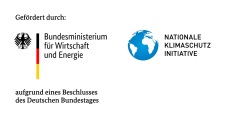Climate protection management
Climate Protection at OVGU
The OVGU defines a climate-neutral campus by 2030 as an aspirational goal. This essentially includes massive greenhouse gas reductions in the areas of energy and mobility. In addition to minimizing air pollutant and greenhouse gas emissions, the promotion of alternative, climate-friendly mobility forms plays a key role. By 2035, net greenhouse gas neutrality is to be achieved in all areas.
In addition to reducing greenhouse gas emissions, climate protection is often seen as an opportunity to save energy, reduce costs, and strengthen regional value creation. In addition, the university campus can also be made more livable and future-proof.
At the state level, the Otto-von-Guericke University is making its contribution to achieving the climate goals as well as at the municipal level to the climate neutrality of the state capital Magdeburg. The task of our university is to advance the state of education and science through teaching and research. In addition to the application of scientific methods and the pursuit of innovation and new insights, we take on social responsibility for current and future generations. The OVGU implements its commitment to sustainability in a continuous and transparent process that involves the public.
What is climate protection management?
Climate protection management encompasses the organization of climate protection, the balancing of energy flows and greenhouse gases, as well as the strategic orientation, development, and implementation of measures. Climate protection managers work as generalists in an interdisciplinary manner.
Common areas of focus in climate protection management are renewable energies, mobility, resource efficiency, urban development, sustainability in consumption, and consumer advice and education.
Climate protection is a cross-cutting task. There are many interfaces between the requirements, goals, and measures of climate protection as well as the tasks and activities of various business areas. As a community task, effective climate protection depends on the support of the administration and municipal actors.
The climate protection concept
The climate protection concept serves as the strategic basis for future climate protection activities, and it should support planning and decision-making. The concept shows the potential for reducing greenhouse gases. Technical and economic factors are taken into account. Goals and measures are both short-term (up to three years) and medium-term (three to seven years), as well as long-term (over seven years). The contents of the climate protection concept are adapted to the local Besonderheiten of the university and attempt to meet ecological, economic, and social concerns.
Greenhouse gas balancing
Energy and greenhouse gas balances capture the use of energy and the generation of greenhouse gas emissions in all climate-relevant areas. A breakdown is made by cause and energy carrier. The potential analysis identifies the implementable savings potential in energy consumption and potentials for increasing energy efficiency in all areas. The standardized balancing and potential analysis provide a methodological basis for the long-term continuation of the balances and provide a comparison.
Funding reference:National Climate Protection Initiative (funding reference 67K21642)Since 2008, the German Federal Ministry for the Environment has initiated and funded numerous projects with the National Climate Protection Initiative that contribute to reducing greenhouse gas emissions. Its programs and projects cover a wide range of climate protection activities: from the development of long-term strategies to concrete assistance and investment support measures. This diversity is a guarantee for good ideas. The National Climate Protection Initiative contributes to anchoring climate protection locally. Consumers, businesses, municipalities, and educational institutions all benefit from it.
This page is still under construction. If you have any questions, please do not hesitate to contact us.
